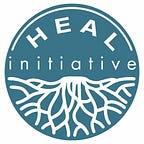Emergency Physicians, Not Just Social Workers, Can Help Patients Find Housing
Disproportionate use of emergency departments by people experiencing homelessness is no secret (BMC Health Serv Res. 2021). Overuse not only strains the health care system, but is also a significant source of burnout for EPs (Ann Emerg Med. 2019).
Homelessness sometimes manifests with treatable medical problems, but the root cause of those problems are clearly structural deficits in society. The lack of a solution to looming structural problems leads physicians to spin their wheels, discharging these patients to the street and perpetuating a cycle of discharge and re-presentation.
Yet the solution is right in front of us. “Housing is health care” must be not only a mantra but an evidence-based policy. Provision of housing reduces ED visits and use of EMS (JAMA. 2009; Psychiatric Serv. 2006; Prehosp Emerg Care 2014). Housing resolves many legitimate medical problems and reduces inpatient admissions and lengths of stay. (BMC Health Serv Res. 2011; J Urban Health. 2021; Am J Public Health 2006).
Housing First models show that housing, even in the absence of an abstinence requirement, significantly reduces alcohol use among alcoholics. (JAMA. 2009) All of this, of course, amounts to significant cost savings, even after accounting for the cost of housing. (BMC Health Serv Res. 2011; Health Serv Res. 2012.)
Overwhelming evidence indicates that housing is health care, yet many physicians do not think of housing as their responsibility but that of a social worker. The truth is that procuring housing is not a task for either a social worker or a physician but for both of them. I always appreciate when a social worker reaches out to me to express concerns over an unsafe discharge plan. Physicians also can and should advocate for safe discharge plans.
Homeless shelters are insecure environments where medical equipment and prescriptions can be stolen, infectious diseases spread more rapidly, and the stress of its transience prevents people from prioritizing their health care. (National Public Radio. 2012). Discharge to these locations may very well cause medical harm.
Finding a Home
Some patients experiencing homelessness, such as those with permanent disabilities or mental illnesses, are clearly suited for placement to skilled nursing facilities or personal care homes. Unfortunately, this is often not recognized until a patient presents with failure to thrive or another euphemism for lacking needed support. We should be more proactive in identifying patients who will be unlikely to care for themselves. Physical and occupational therapy evaluations are a good start for physical disability, but perhaps we should also be performing cognitive assessments more routinely.
If long-term placement is not appropriate for a patient, my next step in procuring housing is to get nosy about a patient’s sources of income, asking about salary, disability, and social security. I will also ask about family support or if he belongs to a church or other community. This helps me triage what options will be available and manage patient expectations. Many times, a patient will have enough combined income to afford low-income housing on his own and all he needs is the information on how to apply. Income can be used to negotiate a contract with a personal care home in other situations.
Patients often lack substantial income, however. It is helpful in these cases for the physician to know the community programs for homelessness. Atlanta has a centralized intake center called Gateway that determines the best program depending on a patient’s age, gender, comorbidities, and other factors. Most of these programs require self-check-in, but recognizing that many people experiencing homelessness will go to an emergency department for help instead of Gateway, Hospital to Home was created for hospitals to be able to house patients bypassing central intake.
Barriers and Last Resorts
Certain illnesses open up additional sources of funding that can be used for housing. Those living with HIV can access housing through programs federally funded by the Ryan White Comprehensive AIDS Resources Emergency Act. More recently, those diagnosed with COVID-19 were eligible for hotels to facilitate isolation for public health reasons. Sadly, I have had patients visibly upset when their COVID-19 swab produced a negative result because it closed an opportunity for housing.
These are examples of biological citizenship, when people gain access to social welfare programs based on a disease state (Oxford Bibliographies. Apr. 23, 2021). Biological citizenship is indicative of our society’s tendency to compensate for disease rather than prevent it. We will allocate funding for housing patients after they contract COVID-19 to protect others but also ask them to congregate in shelters, increasing their risk of contracting the coronavirus in the first place.
If I am unsuccessful in securing permanent housing for a patient, I investigate temporary housing such as medical respite or a 30-day contract with personal care homes. The obvious concern is that patients will be out on the street again after the period of acute illness or paid contract ends, but studies have found that even temporary housing reduces hospital readmissions (J Prev Interv Community. 2009). Temporary housing should also be coupled with outpatient case management to start the process of securing stable funding and permanent housing.
Thankfully, physicians are increasingly recognizing the role of structural violence and social determinants of health in causing illness. Ultimately, homelessness in one of the richest nations in the world is a policy choice. We as physicians can commit to seeing housing as a part of patients’ treatment plans, but we should also use our power and privilege to advocate for larger structural change. Housing is health care, and we must not only proclaim it as an adage but practice it daily.
Copyright © 2022 Wolters Kluwer Health, Inc. All rights reserved.
Dr. Kole practices hospital medicine at Grady Memorial Hospital in Atlanta through Emory University. He is also an alumnus of the HEAL Initiative, and focuses on health equity domestically and internationally.
Originally published in January 2022 in Emergency Medicine News.
